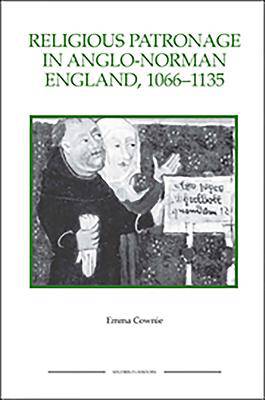
- Afhalen na 1 uur in een winkel met voorraad
- Gratis thuislevering in België vanaf € 30
- Ruim aanbod met 7 miljoen producten
- Afhalen na 1 uur in een winkel met voorraad
- Gratis thuislevering in België vanaf € 30
- Ruim aanbod met 7 miljoen producten
Zoeken
Omschrijving
Although the Norman Conquest of 1066 swept away most of the secular and ecclesiastical leaders of pre-Conquest England, it held some positive aspects for English society, such as its effects on Anglo-Saxon monastic foundations, which this study explores. The first part deals in depth with five individual case studies (Abingdon, Gloucester, Bury St Edmunds, St Albans and St Augustine's, Canterbury) as well as Fenland and other houses, showing how despite mixed fortunes the major houses survived to become the richest in England. The second part places the experiences of the houses in the context of structural changes in religious patronage as well as within the social and political nexus of the Anglo-Norman realm. Dr Cownie analyses the pattern of gifts to religious houses on both sides of the Channel, looking at the reasons why they were made. EMMA COWNIE gained her Ph.D. from the University of Wales at Cardiff.
Specificaties
Betrokkenen
- Auteur(s):
- Uitgeverij:
Inhoud
- Aantal bladzijden:
- 280
- Taal:
- Engels
- Reeks:
- Reeksnummer:
- nr. 7
Eigenschappen
- Productcode (EAN):
- 9781843836353
- Verschijningsdatum:
- 15/09/2011
- Uitvoering:
- Paperback
- Formaat:
- Trade paperback (VS)
- Afmetingen:
- 156 mm x 234 mm
- Gewicht:
- 390 g

Alleen bij Standaard Boekhandel
+ 119 punten op je klantenkaart van Standaard Boekhandel
Beoordelingen
We publiceren alleen reviews die voldoen aan de voorwaarden voor reviews. Bekijk onze voorwaarden voor reviews.








